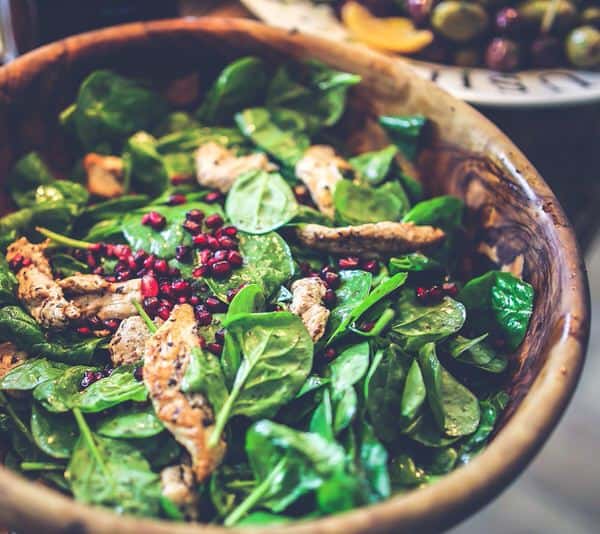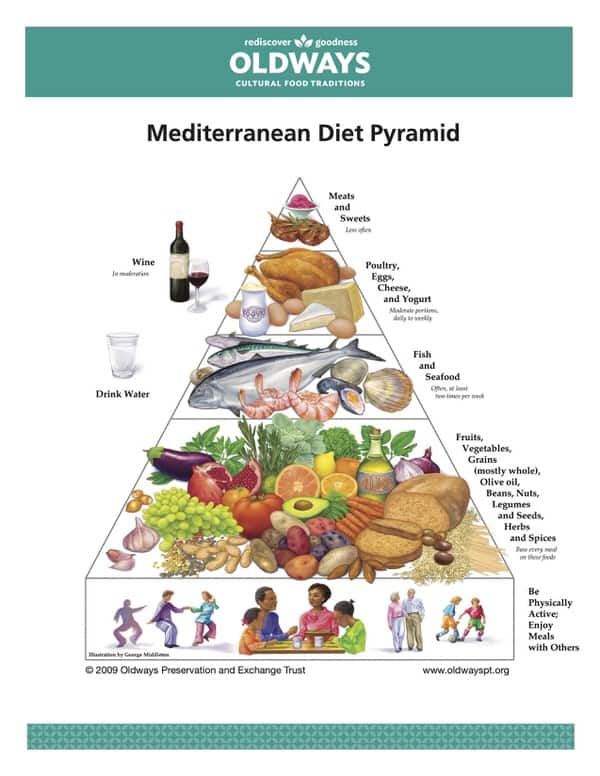A relative newcomer to the diet scene, the MIND diet focuses on optimizing brain health. Martha Clare Morris of Rush University developed this offshoot of the Mediterranean Diet. She first published information on its effectiveness in 2015.
MIND stands for Mediterranean-DASH Intervention for Neurological Delay. I’ve been following its general guidelines for almost a year now. This post recounts my experience with the MIND diet and provides information to help you decide whether you want to try it yourself.

Why consider the MIND diet?
The main reason to follow the MIND diet is that research shows it can significantly lower your risk of developing Alzheimer’s Disease (AD). In a 4.5-year study published in Alzheimer’s & Dementia, researchers found that even moderate adherence to the MIND diet was linked with a lower incidence of AD.
In analyzing study results, they adjusted for age, sex, education and other important factors. And they found that participants who followed the MIND diet principles most closely (top third of MIND diet sample) had a 53% lower incidence of AD vs. those in the bottom third of the sample (people with low adherence to the diet).
The middle third (people with moderate adherence to the diet) also experienced benefits: AD occurred 35% less often in their group vs. the lower third.
In all, the people who followed the MIND diet most closely experienced a slowdown in their rate of cognitive decline equivalent to 7.5 years. Meaning that their cognitive age in follow-up testing was on average 7.5 years younger than the cognitive age of those with low adherence to the diet.
Researchers also studied the incidence of AD among respondents practicing the Mediterranean Diet and DASH (Dietary Approaches to Stop Hypertension). While these diets were also linked with a lower incidence of Alzheimer’s, the MIND diet’s effect was the largest.

What exactly is the MIND diet?
Based on impressive results like these, you’ll want to hear more about what the MIND diet entails. As its name suggests, it blends characteristics of the Mediterranean Diet (“MedDiet”) and DASH.
Mediterranean Diet
Oldways and the Harvard School of Public Health collaborated to create The Mediterranean Diet Pyramid in 1993. Rated #1 Best Diet Overall by US News & World Report in 2020, 2019 and 2018, the MedDiet originated from the observation of how people in Mediterranean coastal communities tended to eat.
The diet emphasizes vegetables and fruits, whole grains, fish and nuts. It restricts the consumption of saturated fat and sweets and encourages you to have a glass of wine once a day.
DASH
US News & World Report ranks DASH as the #2 Best Diet Overall in 2020. Developed in the 1990s, DASH builds on the MedDiet with a focus on limiting sodium to address dieters’ high blood pressure. It has two versions: one with 2300 mg of sodium per day, and the American another with 1500 mg/day.
DASH diet expert Marla Heller released a new book* in 2018 with updated research. The book completely incorporates Mediterranean Diet principles into DASH. Thus, now DASH can be thought of as the Mediterranean Diet with a specific focus on sodium and blood pressure management.
MIND
The MIND diet (#5 in US News & World Report) is another variation on the MedDiet-DASH theme. It’s based on the same general principles as the Mediterranean Diet, but it emphasizes foods linked to optimum brain health. Thus, it encourages you to eat leafy green vegetables like kale, spinach, and other greens. It also promotes berries above other fruits.
Like the diets on which it’s based, MIND restricts the consumption of saturated fats like red meat, and it limits sugars. It prescribes olive oil as your main cooking oil.
Similar to the MedDiet, the MIND diet is a way of eating, not a dietary plan per se. It isn’t oriented toward weight loss, although it’s possible to lose weight on it. This is especially true if you’re shifting to MIND from a diet with more saturated fat and sugar.
In my experience with the MIND diet, I lost only one or two pounds. But I’d already been “eating healthy” prior to starting MIND, and I also wasn’t trying to lose weight.

MIND diet guidelines
The MIND diet’s key points are as follows:
- green leafy vegetables every day
- another non-starchy vegetable every day
- berries >=2 times per week
- nuts >=5 times per week (your go-to snack)
- whole grains 3 times per day
- fish >=1 time per week
- poultry >= 2 times per week
- legumes >=4 times per week
- wine 1 glass/day
How does MIND differ from DASH and the Mediterranean Diet?
Since all three of these diets are general guidelines for eating rather than strict rules and limits like you might find in the Atkins Diet or Whole 30 eating plan, it can be hard to distinguish how they vary from one another.
Differences are indeed slight. For example:
- The MedDiet tells you to eat more fish and less poultry than MIND does
- Limited amounts of potatoes are fine on the MedDiet but not so fine on MIND
- DASH is the only one with specific limits on sodium intake
- MIND stresses green leafy vegetables and berries (brain-optimizing foods) over the others’ broad direction to eat vegetables and fruits
But ultimately, all three diets are similar. The Mediterranean Diet, the one from which the other two derive, is not really a diet. It’s a way of life.
While recipes and daily eating plans exist for all three diets, each of them is more or less a set of guidelines. I think that’s a big reason why I’m drawn to these diets – they leave room for individual freedom and preferences.
Resources
To learn more about these diets, check out the following books:
- The Complete Mediterranean Cookbook*, by America’s Test Kitchen
- The 30-Minute Mediterranean Diet Cookbook*, by Deana Segrave-Daly and Serena Ball
- The DASH Diet Mediterranean Solution*, by Marla Heller
- DASH Diet for Beginners*, by Lauria Houck
- Diet for the Mind*, by Martha Clare Morris
- The MIND Diet Plan and Cookbook*, by Julie Andrews
Summary of my experience with the MIND diet
I happened upon the MIND diet in a roundabout way. I’d tried the Wahls Protocol in 2019 but found it too restrictive for my taste, as well as too hard to follow. Despite its challenges, however, my experience with the Wahls Protocol gave me a key insight: I felt better when I ate more vegetables.
I’ve always liked the Mediterranean Diet. So when I stopped doing Wahls, I migrated back to a MedDiet focus, but with more veggies than before –especially leafy greens. And as it happens, berries are my favorite type of fruit – so I eat more of them.
Without even knowing it, I had started eating according to the basic MIND diet principles. My experience with the MIND diet, then, merges with my experience of “eating healthy” in a way that’s consistent with my personal preferences.
I don’t know whether the MIND diet has reduced my risk of developing Alzheimer’s, but I assume I’d have to eat this way for much longer than a year to notice any cognitive benefits.
And since the goal of the diet is to reduce neurological decline, if my cognitive skills stay the same or go down only a little bit, that’s considered good. In summary, I’m not sure how to measure the diet’s effect on my own cognition.
But considering what seems like dismal alternative, I’ll settle for the prospect of delayed cognitive decline any day.
Specific benefits I’ve noticed
- good energy level
- positive outlook on life
- smooth digestive function
- (maybe) better sleep – at least no worse!
- not feeling hungry all the time
Perhaps the best part about the MIND diet, actually about all three of these diets, is that they allow for “cheating.” They don’t say, “Never eat red meat,” or “Never indulge in birthday cake.”
The MedDiet, DASH and MIND diets offer realistic perspectives on food’s role in life. They recognize that food is something to be enjoyed. And that humans can’t be expected to adhere to strict rules 100% of the time.

Two thumbs up!
For its practical orientation as well as its brain health benefits, I give my enthusiastic endorsement to the MIND diet. But in general, I think you can’t go wrong with any of these three eating plans.
Now excuse me. I have to go prepare a dinner of grilled salmon, brown rice and tossed salad. Accompanied, of course, by a glass of Pinot Noir.
I’d love to hear whether you’ve tried the MIND diet, and what your thoughts on it might be. Let me know in the comments!



